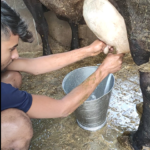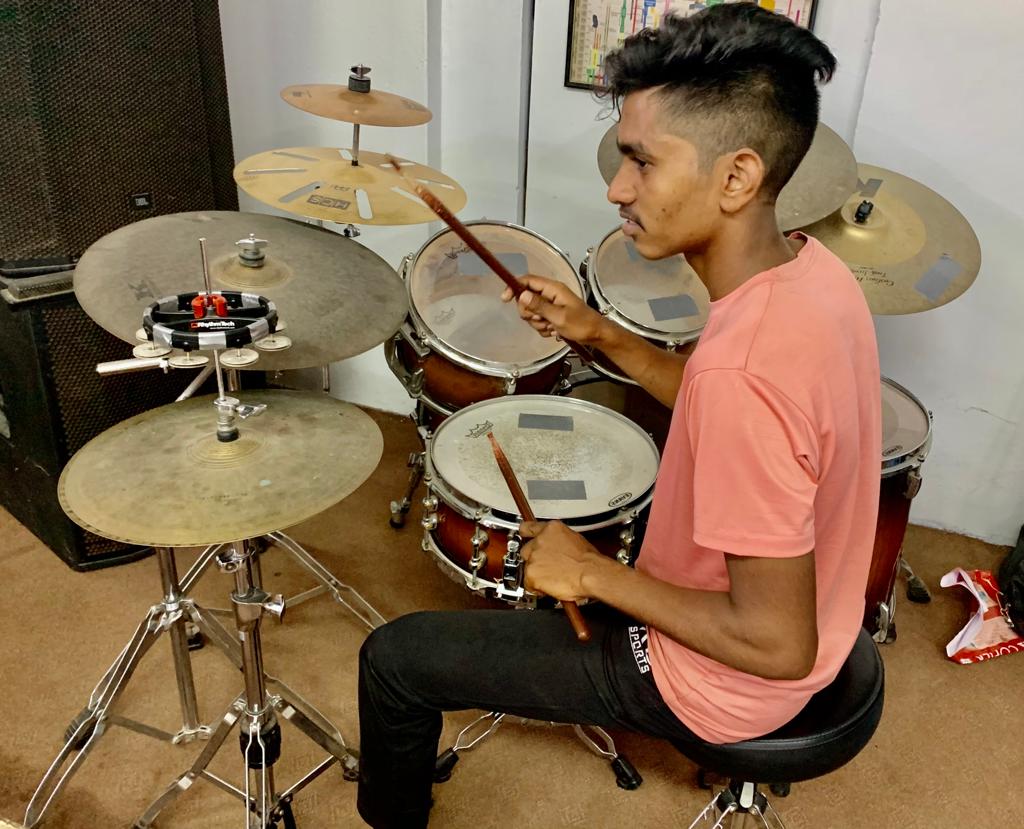Developing Positive Character Traits In Children
The Problem
Crimes committed by Juveniles in India are on the rise and Madhya Pradesh has been ranked the number 1 state in the country for 9 out of the last 10 years, according to reports published by the National Crime Records Bureau (NCRB). This situation will likely remain the same if appropriate measures are not taken to address the root causes.
Disclaimer: The high crime rate in any state does not necessarily reflect the entire population or culture of the state. It’s essential to avoid making broad assumptions about the people and culture based solely on the crime rate.
However, the fact that there is a high crime rate in Madhya Pradesh is a serious concern that needs immediate attention. Criminal activities have far-reaching consequences, affecting the fabric of society and the well-being of its residents.
The way people are brought up and the society they live in plays a big role in the development of their behavior. When individuals are not instilled with a strong moral compass or lack ethical values, it can contribute to the development of criminal tendencies. Also, when people have strong desires or dreams but lack legal ways to achieve them, they may turn to crime instead.
However, it’s important to note that many behaviors, even if they don’t translate into crimes, still have a negative impact on people and society. For example, disrespectful or aggressive behavior, substance abuse, discrimination, manipulation, corruption or engaging in harmful activities can harm individuals’ health, well-being and create tension within communities.
When the root causes of Antisocial & Criminal behavior aren’t addressed, it has severe consequences for society.
Victims and communities suffer severe psychological trauma, leading to lasting emotional scars and mental health disorders. Public trust weakens, leaving behind an atmosphere of hate, fear and insecurity that erodes social cohesion and trust among community members.
The resulting negative environment impedes economic growth, and development, further aggravating the challenges faced by the state. Plus, when crime continues to happen, it creates a cycle that never seems to end, causing even more harm to communities and making it hard for them to flourish.

Root Causes

Poverty, lack of access to quality education, unemployment, and income inequality can lead to frustration, desperation, and a sense of hopelessness among young individuals, increasing their likelihood of engaging in criminal activities.
Dysfunctional family environments, including domestic violence, substance abuse, poor parenting, and lack of positive role models, impact a child’s development and increase the likelihood of engaging in criminal behavior or experiencing mental health issues.
Peer pressure can create a strong influence and contribute to a cycle of delinquency as individuals seek validation, belongingness and gain acceptance from their peers, even if it means engaging in criminal behavior.
Alcohol, tobacco, and other drug addiction can disrupt family dynamics, impair judgment, increase aggression, and lead to impulsive and risky behaviour making them more susceptible to engaging in criminal activities.
Lack of Life Skills and Virtues leaves juveniles ill-equipped to handle adversity, make informed decisions, and navigate ethical dilemmas, limiting their career opportunities and increasing their sense of isolation and susceptibility to negative influences or vices.
Exposure to violence, whether in the community, through media, or online platforms, can desensitize young individuals and normalize aggressive or criminal behaviour. Unrestricted access to violent media content may contribute to the imitation of harmful actions.
Certain traits contribute to juvenile delinquency, including impulsiveness, low self-control, risk-taking behavior, lack of empathy, poor anger management skills and inability to delay gratification. These interact with other root causes, exacerbating criminal behavior.
Our Theory Of Change
By engaging and collaborating with key stakeholders such as parents, community members, educators, and law enforcement, we can harness their collective wisdom and expertise to shape comprehensive and sustainable solutions. This collaborative approach allows us to develop effective strategies aimed at fostering a safer environment for everyone.
Empowering parents, elders, and siblings to be positive role models creates a ripple effect within families and the broader community. It lays the foundation for a nurturing and supportive environment, promoting the well-being and success of all its members.
Early intervention programs address risk factors during the formative years. Timely support can guide individuals away from negative behaviors by instilling positive values and life skills that foster social and emotional development.
Rehabilitation offers juveniles a chance to transform their lives, fostering empathy, positive values, and better coping mechanisms. It helps them resist dangerous behavior, make responsible choices, and become contributing members of society, unlocking their full potential.
Livelihood opportunities that provides dignity of labor can significantly decrease antisocial and criminal tendencies. It breaks the cycle of poverty, reduces financial motivation for illegal activities, and builds self-worth and confidence.
The state government has the authority and resources to implement comprehensive and widespread initiatives that can reach a large number of people across various communities.
Our solutions
our impact
Since 2020, our team has been working in Jabalpur district of Madhya Pradesh, We have just started and recognize that there is a lot more to do.
our Partners
Developing Positive
Character
Traits In
Children
The Problem

Crimes committed by Juveniles in India are on the rise and Madhya Pradesh has been ranked the number 1 state in the country for 9 out of the last 10 years, according to reports published by the National Crime Records Bureau (NCRB). This situation will likely remain the same if appropriate measures are not taken to address the root causes.
Disclaimer: The high crime rate in any state does not necessarily reflect the entire population or culture of the state. It’s essential to avoid making broad assumptions about the people and culture based solely on the crime rate.
However, the fact that there is a high crime rate in Madhya Pradesh is a serious concern that needs immediate attention. Criminal activities have far-reaching consequences, affecting the fabric of society and the well-being of its residents.
The way people are brought up and the society they live in plays a big role in the development of their behavior. When individuals are not instilled with a strong moral compass or lack ethical values, it can contribute to the development of criminal tendencies. Also, when people have strong desires or dreams but lack legal ways to achieve them, they may turn to crime instead.
However, it’s important to note that many behaviors, even if they don’t translate into crimes, still have a negative impact on people and society. For example, disrespectful or aggressive behavior, substance abuse, discrimination, manipulation, corruption or engaging in harmful activities can harm individuals’ health, well-being and create tension within communities.
When the root causes of Antisocial & Criminal behavior aren’t addressed, it has severe consequences for society.
Victims and communities suffer severe psychological trauma, leading to lasting emotional scars and mental health disorders. Public trust weakens, leaving behind an atmosphere of hate, fear and insecurity that erodes social cohesion and trust among community members.
The resulting negative environment impedes economic growth, and development, further aggravating the challenges faced by the state. Plus, when crime continues to happen, it creates a cycle that never seems to end, causing even more harm to communities and making it hard for them to flourish.
Root Causes
Poverty, lack of access to quality education, unemployment, and income inequality can lead to frustration, desperation, and a sense of hopelessness among young individuals, increasing their likelihood of engaging in criminal activities.
Dysfunctional family environments, including domestic violence, substance abuse, poor parenting, and lack of positive role models, impact a child’s development and increase the likelihood of engaging in criminal behavior or experiencing mental health issues.
Peer pressure can create a strong influence and contribute to a cycle of delinquency as individuals seek validation, belongingness and gain acceptance from their peers, even if it means engaging in criminal behavior.
Alcohol, tobacco, and other drug addiction can disrupt family dynamics, impair judgment, increase aggression, and lead to impulsive and risky behaviour making them more susceptible to engaging in criminal activities.
Lack of Life Skills and Virtues leaves juveniles ill-equipped to handle adversity, make informed decisions, and navigate ethical dilemmas, limiting their career opportunities and increasing their sense of isolation and susceptibility to negative influences or vices.
Exposure to violence, whether in the community, through media, or online platforms, can desensitize young individuals and normalize aggressive or criminal behaviour. Unrestricted access to violent media content may contribute to the imitation of harmful actions.
Certain traits contribute to juvenile delinquency, including impulsiveness, low self-control, risk-taking behavior, lack of empathy, poor anger management skills and inability to delay gratification. These interact with other root causes, exacerbating criminal behavior.
Our solutions
our impact
Since 2020, our team has been working in Jabalpur district of Madhya Pradesh, We have just started and recognize that there is a lot more to do.
our Partners



Contact Us
Address
871/A Napier Town Jabalpur, Madhya Pradesh 482001
Email Us
theultimateleap@gmail.com
Call Us
+91-9131830447






